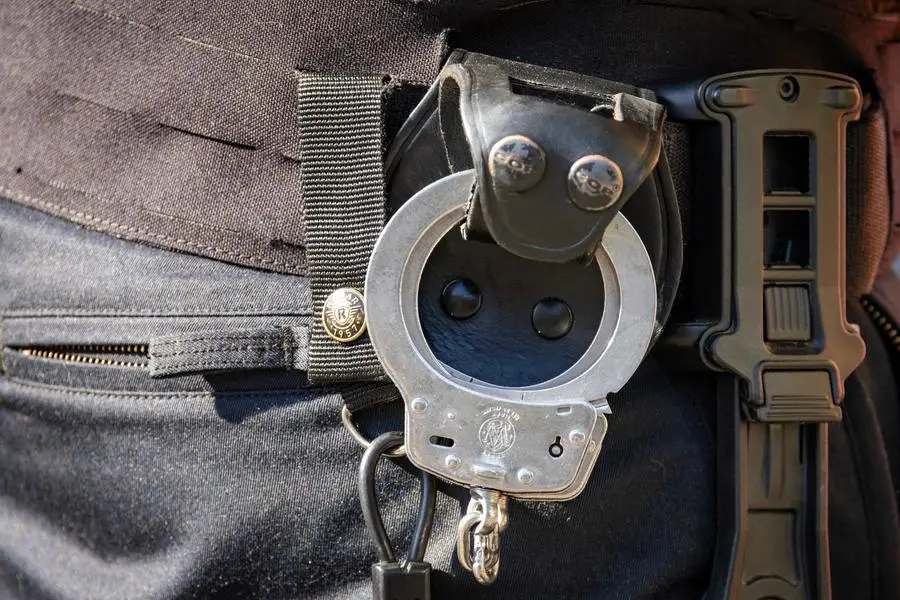PHOTO
Investigators on Monday arrested three German nationals suspected of spying for China by providing access to secret maritime technology, prosecutors said -- a case that could stoke new tensions between Berlin and Beijing.
The trio, named as Herwig F., Ina F. and Thomas R. "are strongly suspected of having worked for a Chinese secret service" at some point before June 2022, the prosecutors said in a statement.
The arrests in Duesseldorf and Bad Homburg in western Germany came amid repeated Western warnings of Chinese intelligence services targeting advanced technologies.
Thomas R. is suspected of working as an agent for an employee of the Chinese ministry of state security (MSS), obtaining information in Germany on technologies that could be used for military purposes.
He is said to have established contact with Herwig F. and his wife Ina F., who run a company in Duesseldorf, in order to access such technologies and make contacts in the German scientific and research community.
The company signed an agreement with a German university to provide "knowledge transfer", the prosecutors said.
The first phase of the project was allegedly to prepare a study for a Chinese "contractual partner" on state-of-the-art machine parts used in powerful ship engines.
- Ship engines -
The contractual partner was the MSS employee that Thomas R. was working for and the project was financed by Chinese state agencies, according to the prosecutors.
At the time of their arrest, the suspects were also allegedly in further negotiations about research projects that could be useful for the expansion of China's maritime combat capabilities.
The trio are also accused of purchasing a special laser from Germany on behalf of the MSS and exporting it to China without authorisation.
Interior Minister Nancy Faeser called the arrests a "great success for our counterintelligence".
"We are aware of the considerable danger posed by Chinese espionage in business, industry and science," Faeser said.
"The area affected in the current case -- innovative technologies from Germany that can be used for military purposes -- is particularly sensitive," she said.
Concern over Chinese spies has long been a recurring theme for Germany amid a growing debate over the wisdom of economic ties with Beijing.
The country's first national security strategy, unveiled last year, was noticeably tough on China and accused Beijing of repeatedly acting against Berlin's interests.
In its 2023 annual report, the German military's counter-intelligence service (MAD) also warned against potential espionage as China seeks to become a technological world leader by 2049.
In particular, it mentioned joint projects with the German armed forces as a major risk.
- 'Migration of knowledge' -
An investigation by media organisations, including Germany's Der Spiegel magazine, last year alleged that Chinese spies had extracted sensitive information from European politicians through an undercover Chinese intelligence officer going by the name of Daniel Woo.
In 2022, Germany's foreign intelligence chief warned some sections of German society still showed a certain "naivety" towards China and urged vigilance over the "migration of knowledge".
In a particularly high-profile case, a German academic and his wife were charged in 2021 with spying for China after allegedly being approached by Chinese agents during a lecture tour to Shanghai in 2010.
The couple "regularly passed on information to the Chinese intelligence service in the run-up to or after state visits or multinational conferences", prosecutors said at the time.
The latest allegations have dropped just days after Chancellor Olaf Scholz returned from his second visit to China since taking office in 2021.
The German government has faced pressure to loosen its close economic ties to China, particularly since Moscow's invasion of Ukraine exposed Europe's dependence on Russian energy.
However, speaking after meeting Premier Li Qiang, Scholz stressed: "We do not want to decouple from China."





















